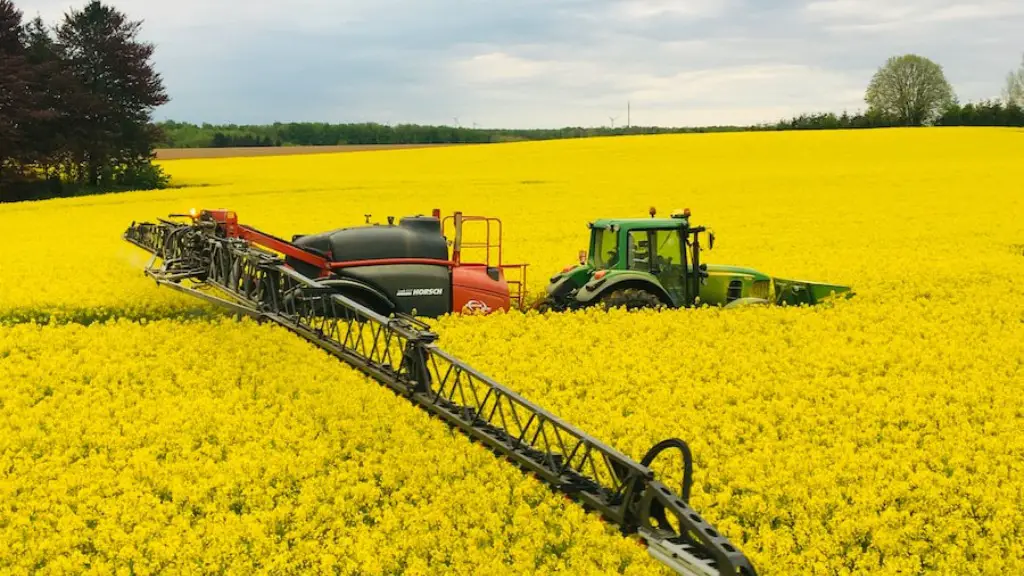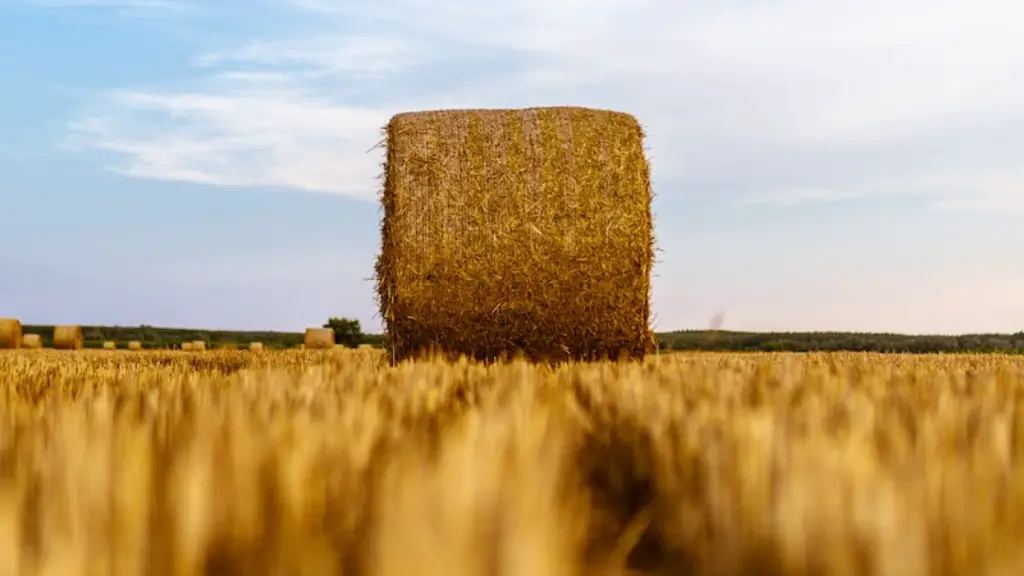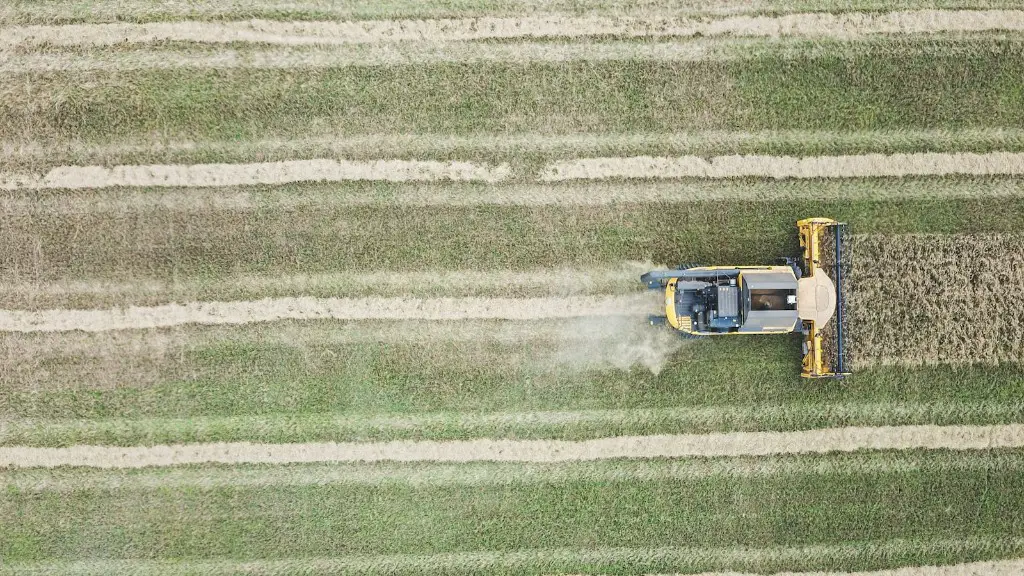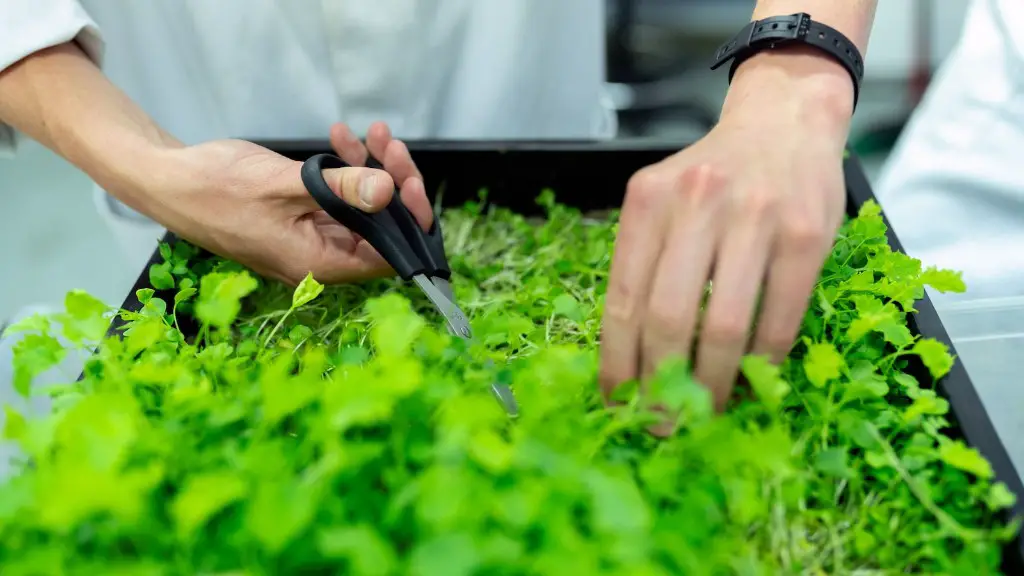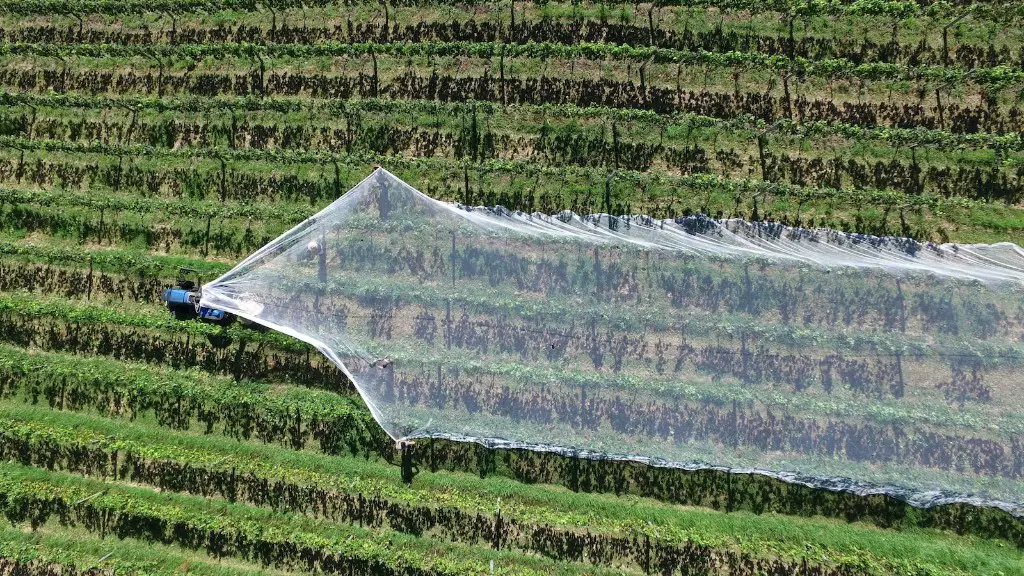Agriculture has been a fundamental part of human development since early civilizations began emerging. Its role in providing food, fuel and other useful components has been fundamental to our success as a species. But why did agriculture emerge? It’s a complicated question, but one that can be broken down into several aspects which have played a crucial role in the emergence of agriculture.
One of the primary reasons agriculture emerged was due to climate change. Warmer temperatures and reduced rainfall led to the decline of plants and wildlife available for hunting, meaning that humans needed to find an alternate food source. This necessitated the development of agriculture so that people could not only feed themselves, but also create a continuous source of sustenance.
Additionally, technological advances allowed for the implementation of new farming techniques, including the use of irrigation, which allowed for greater crop yields. With a steady supply of food, communities could concentrate on other activities such as trading and cultural exchange.
Changes in social structure, culture and technology were also a factor in the emergence of agriculture. As societies developed, some groups began to specialize in farming while others continued their focus on hunting and gathering. In early civilizations such as Egypt, temples began to play an important role in crop production, as they provided land, labor, crops and tools. This provided additional incentives for people to become involved in agriculture.
The emergence of agriculture also had a profound effect on early civilizations. It brought more resources and stability, enabling communities to grow and become more complex. This led to the development of regional economies, trade networks and even the rise of complex societies and civilizations.
Finally, animal domestication played a major role in the emergence of agriculture. Selective breeding of animals allowed for the development of stronger and hardier livestock, which were better able to withstand environmental conditions and produce more for their herders. This helped ensure a steady supply of livestock, which was essential in early civilizations.
Overall, it’s clear that a variety of factors contributed to the emergence of agriculture. From climate change to technological advances, from social changes to animal domestication, each of these elements played an important role in the emergence of agriculture.
Climate Change and Agriculture
Climate change has been a major contributing factor in the emergence of agriculture. In the past, warmer temperatures and less rainfall have led to declines in the availability of plants and animals for hunting, necessitating the need for an alternate food source. This has resulted in the development of agriculture, as this allowed for continual and reliable sources of sustenance.
At the same time, it’s important to keep in mind that climate changes over time. In addition to cooling temperatures and decreased rainfall, areas may experience periods of extreme heat or flooding. Each of these climate events can have a significant impact on agricultural production and output, creating an ever-changing environment for sustainable farming.
Because of this, it is important for farmers to be aware of the potential impacts of climate change on their operations. They should pay close attention to local and regional weather patterns, as this can directly affect crop production, pest management, livestock health, and more. Additionally, it’s important to be prepared for the possibility of sudden changes, as they could lead to a variety of unexpected consequences.
Overall, climate change is one of the primary reasons why agriculture emerged, and it will continue to play an important role in its development as it has in the past. Therefore, it is essential for farmers, agronomists, and policy makers to pay close attention to climate patterns, as this could have serious implications for modern-day agriculture.
Technological Advancements and Agriculture
An important factor in the emergence of agriculture was the development of technology. New farming techniques allowed for improved crop yields, which was a major incentive for people to become involved in agriculture. These techniques included the use of irrigation, crop rotation, and more efficient tools.
At the same time, advancements in farming technology have allowed for mechanization, which has been integral to the production of food on a large scale. From tractors to combines, these tools have made farming more efficient, allowing producers to grow larger crops in shorter amounts of time.
Today, technology is a major component in modern agricultural practices. Advances in communication, mapping, and analysis have revolutionized the way we approach farming. From robotics to precision agriculture, technology has made it possible for farmers to be more precise with their operations.
Technology has also enabled the development of smart technology, which allows for better insights into crop production and environmental conditions. For example, IoT sensors can measure metrics such as temperature, soil moisture, crop growth and pest infestations, providing farmers with detailed data about their operations.
Overall, technological advancements have been essential to the development of agriculture and will continue to play an important role in the future of farming. By utilizing the latest technology, farmers can remain competitive, produce higher yields, and maximize their profits.
Social Changes and Agriculture
The emergence of agriculture was also accompanied by changes in social structure and culture. Communities began to specialize in either farming or hunting and gathering, creating divisions in labor that were necessary for large-scale production. This specialization led to the development of regional economies, trade networks, and even the rise of complex societies and civilizations.
The development of religion and other belief systems also played an important role in the emergence of agriculture. In early civilizations, temples and other religious institutions began playing a role in crop production, as they provided land, labor, crops, and tools. This added an additional incentive for people to become involved in farming.
Lastly, population growth increased the demand for food, causing communities to rely more heavily on agriculture for sustenance. The enlargement of civilizations necessitated larger-scale production of food, which can only be achieved through the implementation of agricultural practices.
Overall, social changes were an important factor in the emergence of agriculture. By enabling communities to specialize in various activities and providing incentives for people to become involved in farming, social changes have had a profound effect on the development of agriculture.
Animal Domestication and Agriculture
Animal domestication was also a crucial factor in the emergence of agriculture. By selecting animals that had more favorable attributes and breeding them, humans were able to create stronger and hardier livestock, which were better able to withstand environmental conditions and produce more for their herders.
Domestic animals such as cattle, sheep, and goats provided a steady and reliable source of food and clothing, which was a game-changer for early civilizations. The development of animal husbandry was also essential for developing stronger labor forces, as animals were used to help farmers work their land.
Today, animal domestication continues to be an integral part of agriculture. Domesticated animals are essential for providing not only food, but also energy and fertilizer. Additionally, they can play an important role in pest control, as they provide natural predators to help keep insect populations at bay.
Overall, animals have been a major factor in the emergence of agriculture, and they continue to be an integral part of modern-day farming practices. By providing a steady source of food, energy, and fertilizer, animals are essential for the success of farms and agricultural operations.
Conclusion
In conclusion, a variety of factors have contributed to the emergence of agriculture. From climate change to technological advances, from social changes to animal domestication, each of these elements played an important role in the development of agriculture. Each of these concepts is still essential to modern-day agricultural systems, and will continue to be crucial for the success of future agricultural operations.
